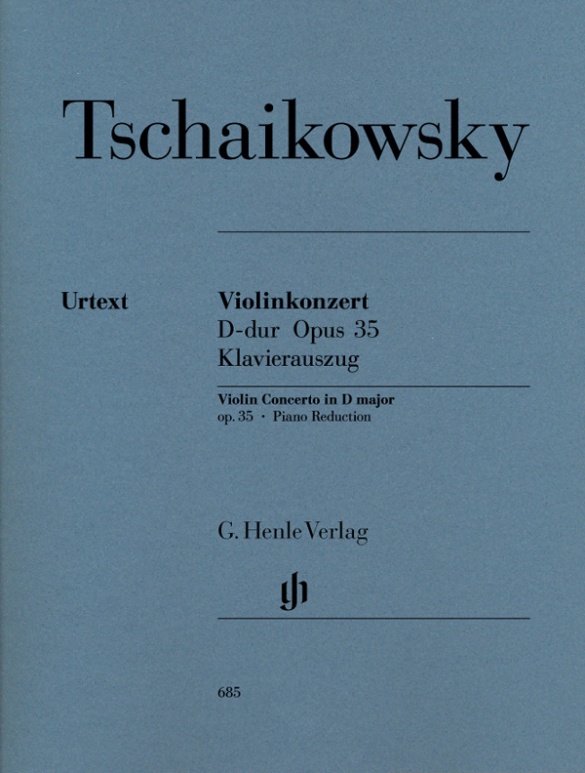

Piotr Ilitch Tchaïkovski
Concerto pour violon en Ré majeur op. 35
Eduard Hanslick, critique redouté de l’époque, ne trouva guère de mots cléments à l’issue de la création de l’œuvre: selon lui en effet, ce n’était plus du violon, mais cela consistait tout au plus à «tirailler», «gratouiller», «arracher». Il ne putcependant stopper la marchetriomphale de l’unique concertode violon de Tchaïkovsky. Ses énormes exigences techniques en font la pierre de touche de tout virtuose du violon. L’effet produitpar le concerto réside toutefois principalement dans sa grande expressivité – quel violoniste n’ai-me pas par-dessus tout la «Canzonetta», empreinte de lyrisme et de mélancolie? – ainsi que dans son caractère slave. Enfin et pour la première fois, cette œuvre majeure de la littérature du violon est publiée dans une édition critique prenant en compte sa forme originale.
CONTENU/DÉTAILS
(Explanation)
Exclusively in the Henle Library APP
Doigtés de: Zakhar Bron (Zhengyu Wu), Julia Fischer, Augustin Hadelich, Linus Roth, Tianwa Yang
CONCERNANT LE COMPOSITEUR
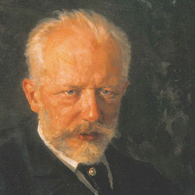
Peter Iljitsch Tschaikowsky
Le plus important et premier compositeur russe formé professionnellement du XIXe s.; ses œuvres majeures sont des opéras, des musiques de ballet, 6 symphonies, 3 concertos pour piano et 1 concerto pour violon, mais aussi des lieder, de la musique de chambre et de la musique pour piano.
| 1840 | Né le 7 mai à Votkinsk, fils d’un ingénieur des mines. |
| 1849–59 | Formation pour devenir juriste. |
| 1861–65 | Études musicales; il fait partie des premiers lauréats du Conservatoire de Saint-Pétersbourg. Études de piano auprès d’Anton Rubinstein. |
| 1866–76 | Déménagement à Moscou pour enseigner l’harmonie, l’instrumentation et lacomposition libre au futur Conservatoire de Moscou. Composition des 1re, 2e et 3e Symphonies (op. 13, 17, 29), du 1er Concerto pour piano en Si bémol mineur op. 23, des 3 Quatuors à cordes (op. 11 1871, op. 22 1874, op. 90 1876). |
| 1868–76 | Activité de critique musical. Il assiste en 1876 à la création à Bayreuth de l’«Anneau des Nibelungen» de Wagner. |
| à partir de 1877 | Voyages en Russie et l’étranger. Il reçoit le soutien de Nadejda von Meck. Composition de la 4e symphonie en Fa mineur op. 36 dont la création a lieu à Moscou en 1878. Création du ballet «Le Lac des cygnes» op. 20. |
| 1879 | Création à Moscou d’«Eugène Onéguine», son opéra le plus connu et le plus important. |
| 1884 | Création de «Mazeppa» à Moscou. |
| à partir de 1887 | Apparitions régulières en tant que chef d’orchestre dirigeant ses propres œuvres et celles d’autres compositeurs. Il est considéré à l’étranger comme le plus important représentant de la musique russe. |
| à partir de 1888 | Le tsar lui accorde une rente à vie. |
| 1888 | Composition et création à Saint-Pétersbourg de la 5e symphonie en Mi mineur op. 64; motif du destin comme une sorte d’«idée fixe». |
| 1892 | Création du ballet «Casse-noisette» op. 71. |
| 1893 | Composition de la 6e symphonie en Si mineur («Pathétique») op. 74, créée en octobre 1893 à Saint-Pétersbourg. Meurt du choléra le 6 novembre à Saint-Pétersbourg. |
About the Authors

Ernst Herttrich (Editeur)
Dr. Ernst Herttrich, born in 1942 in Würzburg, read musicology, history, German and theology at the universities in Würzburg and Cologne. In 1970 he earned his doctorate in Würzburg with a study of the expression of melancholy in the music of Mozart.
From 1970 to 1990 he was an editor at G. Henle Publishers in Munich, after which he was Head of the Beethoven Complete Edition for over 15 years. In 1999 he took over as Head of the Beethoven-Haus Publishers, and from 2001 was made Head of the Beethoven-Archiv, the research centre at the Beethoven-Haus.
He has been a visiting professor at Meiji Gakuin University in Tokyo and has undertaken several lecture tours both there and to Kyoto. His research interests include source studies, editorial techniques and music history. Herttrich’s publications include “Beethoven. Liederkreis an die ferne Geliebte” (Bonn 1999) and “Ludwig van Beethoven. Biographie in Bildern” (Bonn, 2000). Herttrich has edited over 100 Urtext editions for G. Henle Publishers.
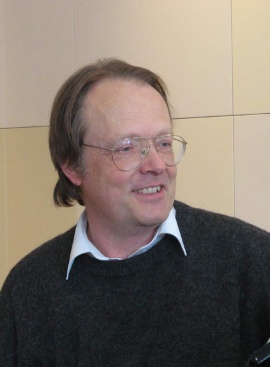
Johannes Umbreit (Réduction pour piano)
Prof. Johannes Umbreit studied the piano at the Musikhochschule in Munich. From 1987 onwards he was a regular accompanist at courses given by Wolfgang Schneiderhan, Thomas Brandis, Ljerko Spiller, Igor Ozim, Olga Woitowa, Ernő Sebestyén, Walter Nothas, F. Andrejevsky, Denis Zsigmondy and Zakhar Bron amongst others. He has appeared in numerous radio and TV broadcasts and plays chamber music with members of the Bavarian State Orchestra, the Munich Philharmonic Orchestra and the Bavarian Radio Symphony Orchestra.
He is on the jury of different international competitions and has been invited to several international music festivals. Umbreit was a teacher for almost ten years at the Musikhochschule in Munich and at the same time a lecturer for chamber music and piano accompaniment at the Richard Strauss Conservatory. Since 2008 he has been a lecturer at the Hochschule für Musik und Theater München. As the long-serving managing director of the Richard-Strauss-Gesellschaft, he was made an honorary member of the board in 2009. In May 2011, the Bavarian Minister of Culture appointed Johannes Umbreit an honorary professor of the Hochschule für Musik und Theater München on the suggestion of its academic senate.
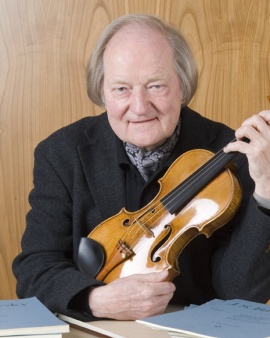
Kurt Guntner (Doigtés violon)
Prof. Kurt Guntner was born in Munich on Mozart’s 183rd birthday. He studied the violin with Ludwig Ackermann, Max Rostal and Henryk Szeryng. At the age of 18, he made his solo debut in the Kongreßsaal at the German Museum in Munich, performing Beethoven’s Violin Concerto with the Munich Philharmonic Orchestra. At the age of 22 he was appointed first concertmaster with the Bavarian State Orchestra. After 10 eventful years at the Bavarian State Opera with conductors such as Ferenc Fricsay, Joseph Keilberth and Hans Knappertsbusch, Rudolf Kempe invited him to become the first concertmaster with the Munich Philharmonic Orchestra, giving him the opportunity to perform the violin solo in many of the great violin concertos.
Of particular appeal were the BR’s invitations to perform and record great violin concertos that were seldom played, including those by Casella, Schillings, Szymanowsky. Kurt Eichhorn initiated this series– Jan Koetsier, Marek Janowski and others conducted other concertos. Kurt Guntner was also first concertmaster with the Bayreuth Festival Orchestra for many years, and played with the Munich Bach Orchestra under Karl Richter, in the Association of Soloists in The Bach Week in Ansbach and with the Münchner Bachsolisten. In 1972 he founded the internationally acclaimed ODEON-TRIO, together with the cellist Angelica May and the pianist Leonard Hokanson, touring all over the world with them for 25 years. In 1976 Guntner was called to the tenured chair of violin at Munich’s Hochschule für Musik und Theater, teaching students from around the world for 28 years.
He made numerous recordings for radio, television, record and CD. Karl Schumann described Guntner’s broad musical personality thus: “Kurt Guntner is a practical orchestral musician, soloist, chamber musician and educator in one person”.
In 1997 Kurt Guntner was awarded the order of merit (first class) of the Federal Republic of Germany.
Kurt Guntner died on 9 January 2015 in Munich.
He was closely associated with G. Henle Publishers for several decades. Since the end of the 1980s he had produced numerous Urtext editions of works for violin for the publishing house, sharing pedagogically polished bowings and fingerings for different works including violin concertos by Bach, Haydn, Mozart, Bruch and Tchaikovsky, as well as numerous other editions.
Informations sur la sécurité du produit

G. Henle Verlag
Vous trouverez ici des informations sur le fabricant du produit.G. Henle Verlag e.K.
Forstenrieder Allee 122
81476 München
Allemagne
info@henle.de
www.henle.com
After many subsequent editions, notably those by Auer, Kreisler and Oistrakh, this splendid co-production takes into account all surviving sources of this epoch-making concerto and critically evaluates them.
Stringendo AUSTA, 2013Gleichwohl bietet die Ausgabe den wohl gegenwärtig besten Notentext des Werks und macht mit einer Fülle von sehr interessanten Varianten vertraut, die nun problemlos studiert werden können.
Das Orchester, 2012Endlich und erstmals liegt nun auch dieser Meilenstein der Violinliteratur in einer textkritischen Ausgabe vor, die seiner ursprünglichen Gestalt gerecht wird.
Neue Musikzeitung, 2008Die Einrichtung durch Kurt Guntner ist ebenfalls optisch sehr ansprechend, da vor allem nicht überladen. Und liest man beispielsweise die Fingersätze, die Guntner vorschlägt, so ist man verblüfft, ob der logischen Stringenz, mit der sie zu den einzelnen Passagen passen.
Liebhaberorchester, 2007In presenting this urtext, Henle offers no such changes and also steers clear of the more romantic reading inherent in Oistrakh’s fingering suggestions. … The whole history of the concerto and its origins are extensively discussed in the Preface while the Critical Comments detail all markings and differences from the sources. … The violin part is faithful to the composer’s original intentions and is a welcome addition to the existing array.
Stringendo, 2006The new Henle edition of Tchaikovsky’s Violin Concerto is a welcome addition to the existing array of versions, offering an interesting perspective on this ever-popular work. … The editorial comments are concise, helpful and meticulously researched, and the piano edition, taken from Tchaikovsky’s original violin-piano version as well as the much later score, offers a practical reading.
The Strad, 2006Pour la première fois ici, l’œuvre est publiée dans une édition critique prenant en compte sa forme originale.
Crescendo, 2006recommandations
autogenerated_cross_selling
Autres éditions de ce titre
Autres éditions de ce titre


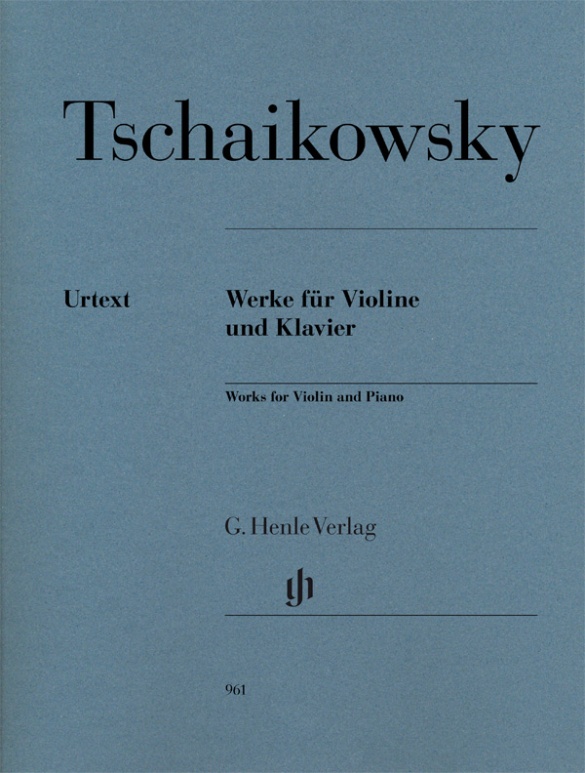

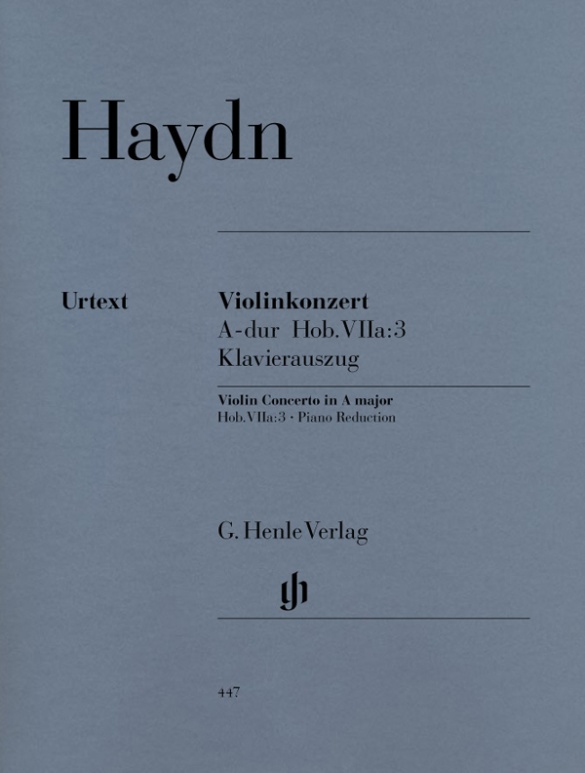
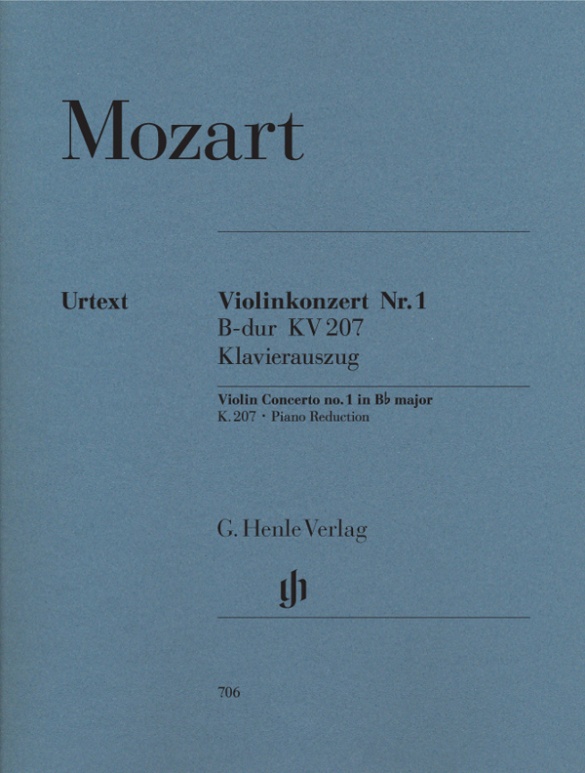
Matériel d'orchestre chez Breitkopf & Härtel